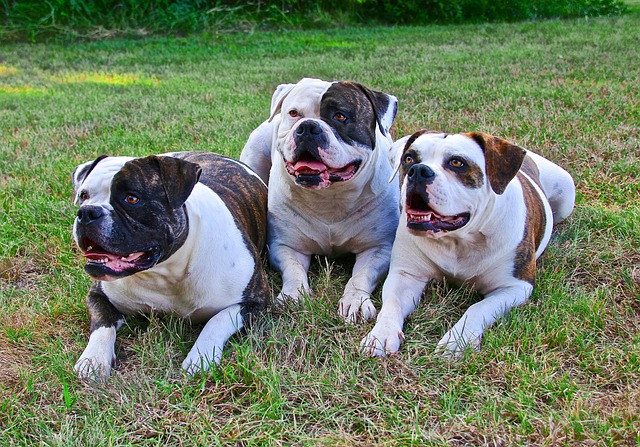Attention dog owners, have you ever wondered about the mysterious effects of testosterone? That's what we will be exploring today. But first, you need to know what neutering is.
Neutering is a surgical procedure for your furry friends that impacts their hormonal balance and behavior.
We'll guide you on this thrilling hormonal rollercoaster, where we'll explore the impact of testosterone on our dogs. From their behavior to overall health, we'll uncover the secrets of this hormone and what it means for our beloved animals.
So, buckle up, pet owners, and prepare for an engaging and enlightening adventure through the fascinating world of hormones and our furry companions' well-being!
How To Manage Testosterone Levels?

Ever wondered why some male dogs can be a little too uncontrollable or even display aggressive behavior?
Well, the reason behind it is high levels of testosterone, i.e., the hormone that plays a crucial role in shaping their behavior. Managing testosterone levels in male dogs is an important aspect of their overall well-being and behavior.
Here are some tips on managing those testosterone levels and helping your furry friend find their inner Zen.
-
Neutering
Neutering dogs is a common and effective method to manage testosterone levels in male dogs. The procedure surgically removes the testicles. These are the primary sources of testosterone production. This procedure has been shown to significantly reduce testosterone levels and can help reduce aggressive behaviors and certain health risks.
-
Exercise and Play
Unleash the energy! Get ready for some action-packed playtime with your furry friend. Regular exercise and play sessions help burn off excess testosterone-fueled energy.
It's like channeling their inner superhero into productive physical activities. Plus, it's a fantastic opportunity for you both to bond and strengthen your superhero team.
Activate your pup's super smarts! Challenge their brilliant mind with interactive dog toys, puzzle games, and training sessions. It's like giving them a mental workout to keep their brainpower sharp.
Mental stimulation helps redirect testosterone-related behaviors and unleashes their inner genius. Get ready to witness your dog's incredible problem-solving skills.
-
Positive Reinforcement Training
It's time to unleash the power of positive reinforcement! Rewarding good behavior and redirecting unwanted behavior is the key to shaping your dog's superhero behavior. Celebrate their victories with treats, praise, and belly rubs, and watch them soar to new heights of obedience and superhero-like manners.
-
Environmental Enrichment
Create a world of excitement for your furry superhero! Offer a variety of interactive toys, sensory experiences, and safe chewing options to keep them entertained. It's like building a playground of adventures where they can unleash their superhero curiosity and creativity. Say goodbye to boredom and hello to a world of fun!
-
Healthy Diet and Consistent Routine
Superheroes need super fuel! Consult with your trusted veterinarian to design a nutritious and balanced diet suitable for your dog's age and size. It's like providing them with a customized superhero diet that supports their hormonal balance and overall health. Get ready for a feast fit for a superhero!
Superheroes thrive on structure! Create a consistent daily schedule for your dog. It's like creating their own superhero schedule, complete with regular feeding times, exercise sessions, and training activities. The predictability of their routine helps reduce stress and keeps their superhero powers in check.
-
Environmental Management and Socialization
Transform your home into a fortress of tranquility! Use proper fencing to create a safe haven and prevent your pets from roaming or marking territory. Minimize exposure to triggers that could set off their instincts, ensuring a peaceful and harmonious environment for all.
Encourage positive interactions with other dogs and humans. It's time for your pup to become a social superhero! Join forces with fellow pet owners for controlled playdates and socialization experiences. It's like building a league of extraordinary dog friends, where everyone learns to use their superhero powers for good.
-
Regular Veterinary Check-ups
Call upon your trusty veterinarian for regular check-ups and health screenings. They'll be your superhero squad, monitoring your pup's overall health and hormone levels. With their expertise and guidance, you'll ensure your superhero is always in top form, ready to conquer the world with their superhero charm.
Effects of Decreased Testosterone Levels
When it comes to neutering male dogs, it's essential to understand that it can bring about various physical changes to male hormones. You have to look out for signs that show your dog needs to be neutered. One of the most noticeable changes is a decrease in the dog's testosterone levels, which can have both positive and negative effects.
-
Behavioral Changes
It's important to note that removing testosterone can occasionally lead to changes in certain behaviors in dogs. When male dogs are neutered, it results in decreased testosterone levels, which can have various effects on their behavior and physical attributes.
Here are some changes that you may notice:
Reduced Aggression: Neutered dogs are less likely to fight or display aggressive behaviors toward other dogs or animals.
Decreased Marking Behavior: Neutered dogs mark their territory less frequently or intensely.
Less Wandering: Neutered dogs are often less inclined to wander or roam in search of a mate. -
Physical Alterations
Regarding physical alterations, neutering can lead to decreased muscle mass and increased body fat in male dogs. Their coat might become thinner and less shiny, while their skin may become more delicate and prone to injuries. Neutering can also decrease bone density, impacting the dog's overall health.
However, neutering is not a magical solution for all behavior problems. It should be combined with proper training and behavior modification techniques.
Working closely with a veterinarian or professional trainer is recommended to address underlying behavior concerns and provide appropriate training and guidance.
Pet owners need to understand the effects of decreased testosterone levels after neutering to better manage a dog's behavior and overall health. By considering these factors and seeking professional guidance, pet owners can ensure the well-being of their neutered dogs.
How Does Neutering Affect Testosterone In Dogs?

Neutering is the process in which testicles are removed surgically. Testicles are responsible for producing testosterone in male dogs. This procedure eliminates the primary source of testosterone production in the dog's body.
It takes two to four weeks for your dog’s testosterone levels to reduce after the neutering process. But it can also take up to six months for the testosterone to fully decrease.
Studies have shown that neutering typically reduces testosterone levels ranging from 20% to 60%. However, the extent of the testosterone levels decrease varies based on factors such as the breed, age, and size of the dog.
The immediate effects of decreased testosterone levels may not always be immediately noticeable in a dog's health or behavior. It can take time for changes to become evident. This timeframe can range from several months to years for specific changes to manifest.
Regardless of the expected effects, pet owners must discuss with their veterinarian the process of neutering pet dogs and its potential impact on their dog's health and behavior. Vets can provide guidance, address concerns, and help monitor the dog's well-being post-neutering.
Neutering plays an essential role in controlling the population of homeless animals. However, staying informed about the potential impact on a dog's overall well-being is crucial.
Maintaining open communication with a trusted veterinarian is key to understanding the specific effects of dog neutering and addressing any issues that may arise after the neutering procedure.
How Does Testosterone Impact My Dog's Behavior?
The impact of testosterone on a dog's behavior is significant, and neutering plays a crucial role in modifying certain behavioral tendencies. The extent of these changes can vary depending on the age at which the dog is neutered.
Research suggests that neutering older male dogs generally results in fewer behavioral changes than neutering puppies. However, neutered male dogs tend to exhibit certain positive behavioral traits regardless of age.
For example, they are less likely to try to escape or roam in search of a mate. This can make them more content staying at home and less prone to getting into trouble outside the boundaries of their territory.

Neutering can also contribute to a calmer and more affectionate demeanor in male dogs. They may become less focused on finding a mate and more interested in bonding with their human family members. This increased affection and reduced hyperactivity in male animals can make them easier to train and live with.
In addition to behavioral changes, neutering offers health benefits for male dogs. Neutered dogs are less prone to certain types of cancer, particularly reproductive-related cancers. By eliminating the risk of both testicular cancer and prostate cancer, neutering helps ensure a longer and healthier life for male dogs.
Moreover, neutering prevents male dogs from impregnating female dogs, which helps control the pet overpopulation problem. By reducing the number of unwanted litters, neutering plays a vital role in promoting responsible pet ownership and reducing the burden on animal shelters and rescue organizations.
However, pet owners must understand that neutering is not a magical solution that guarantees immediate behavioral changes. While it can help reduce certain undesirable behaviors, additional training and consistent guidance are often necessary to achieve the desired results.
Working with a behaviorist or a professional trainer can provide valuable assistance in addressing specific behavior concerns and ensuring a harmonious relationship with your neutered male dog.
How To Choose The Best Dog Food For Your Dog After Neutering?
Selecting the right dog food for a neutered dog is vital for their health and well-being. One of the critical factors to consider is weight management. Neutered dogs gain weight due to hormonal changes that can affect their metabolism. Therefore, choosing a dog food formula specifically designed for weight control or maintenance is essential.
When looking for the ideal dog food, focus on products that are labeled as "low fat" or "weight management." These foods are formulated to have a controlled calorie content that helps prevent excessive weight gain in neutered dogs. By providing complete and balanced nutrition while being mindful of calorie intake, these dog foods help maintain a healthy weight in your dogs.
It is vital to choose a dog food that offers high-quality ingredients. Look for formulas that balance proteins, fats, carbohydrates, vitamins, and minerals well. These essential vitamins and nutrients are vital for supporting your neutered dog's overall health, maintaining a healthy weight, and supporting their energy levels and immune system.
Consulting with a vet or a professional animal nutritionist can be beneficial when choosing the right dog food for your neutered dog. They will provide personalized recommendations based on your dog's specific needs, considering their breed, age, size, and activity level. They can also help you determine the appropriate portion sizes to maintain a healthy weight.
Remember to monitor your neutered dog's weight regularly and adjust the portion sizes as needed. Overfeeding can lead to weight gain, while underfeeding can result in nutritional deficiencies. Finding the right balance is critical to ensuring your dog receives optimal nutrition while managing weight effectively.
By selecting a dog food formula that promotes weight management and providing appropriate portion sizes, you can help support your neutered dog's health and well-being, ensuring they maintain a healthy weight and receive the necessary nutrients for a happy and active life.
Final Words!

Neutering male dogs significantly impacts many health benefits, behavior, and overall well-being. While the immediate effects of testosterone reduction may not be drastic, the long-term benefits are worth considering. Neutering can lead to decreased aggression, reduced likelihood of roaming or marking territory, and a calmer, more affectionate demeanor.
However, many pet owners need to note that neutering is not a cure-all for behavior problems. Additional training and behavior modification may be necessary to address specific issues.
When choosing the best dog food for a neutered dog, choose formulas supporting weight management. Neutered dogs are prone to weight gain, so selecting a low-fat or weight-management dog food can help maintain a healthy weight.
Remember to consult a veterinarian for personalized advice and address any concerns related to neutered males and your dog's overall health and behavior.
You can ensure a happier and healthier life by understanding the effects of getting your dog neutered and taking the necessary steps to support your dog's well-being.


0 comments